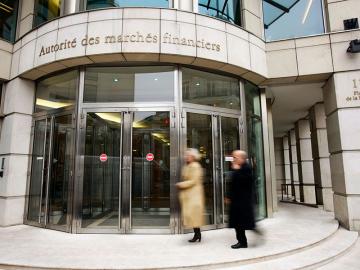Global recession "almost inevitable": New report
The global pandemic has also come at a time when starting interest rates are low, and economic tools to combat the crisis are limited
Unlike with previous crises, Fernandes points out that “this time, we are facing a combined supply and demand shock” exacerbated by a variety of factors, such as the highly integrated nature of today´s world economy and the key role that China, the center of the initial outbreak, now plays in it. The global pandemic has also come at a time when starting interest rates are low, and economic tools to combat the crisis are limited. “Central banks exhausted their firepower during the good times. There is almost no room for monetary stimulus to help sustain the coming risks,” he warns.
Taking into account this context, the report discusses how the economic impact of the coronavirus outbreak is being felt across different industries and 30 countries. It finds that the economic costs of the crisis will hit some much harder than others. For example:
• Service-oriented economies will be particularly negatively affected, and have more jobs at risk.
• Countries like Greece, Mexico, Portugal, and Spain that are more reliant on tourism (more than 15% of GDP) will be more affected by this crisis
• Countries more reliant on exports will suffer disproportionally
The report also attempts a rough estimate of the potential global economic costs of COVID-19 under three different scenarios: a shutdown of 1.5 months (from mid-March to end of April), of 3 months (lasting until mid-June), and of 4.5 months (until end of July.)
Key findings:
In a mild scenario (the shutdown of economic activity lasts 1.5 months, from mid-March to end of April, with May as a recovery month):
• The U.S. is expected to enter into a recession, with GDP shrinking by nearly 2%. Overall, the crisis is expected to cost it nearly 4% of its GDP
• Most European countries will face significant recessions, seeing contractions of their GDP by 2% to over 4%. Judging from prior recessions, a decline in GDP of this magnitude will significantly increase unemployment
• Argentina´s economy will also be one of the worst hit, with its GDP estimated to shrink by about 5%
• In this scenario, nearly all countries analyzed will experience negative GDP growth, apart from China and India (although their growth will still be slashed from a pre-crisis estimate of 6% to below 2% in China´s case, and from around 7% to about 3% for India)
• Overall, for all countries analyzed, an average economic impact of 4.5% of GDP is expected
Full breakdown by country: base scenario of 1.5 months
*Expected GDP growth takes into account the (pre-crisis) expected 2020 GDP growth for each country and the economic costs of the COVID-19 crisis
If crisis measures are extended:
• On average, each additional month of shutdowns will cost 2.5%-3% of global GDP
• If extreme COVID-19-related measures last until mid-June 2020, the U.S. will see its GDP growth fall to about -5%, and both China and India will join the rest of the analyzed countries by entering into a recession.
• Most European countries will be very hard hit. For example, Greece and Portugal will see their GDP fall by nearly 9%, while Italy´s and Austria´s will shrink by over 8% and Spain´s by 7.5%. Meanwhile Germany, Switzerland and the UK will also see their GDP shrink by close to 7%
• Worldwide, if measures last until the end of July 2020, the average decline in GDP would be close to 10.4%. And the decrease in GDP could in some cases be around 14%
According to Fernandes, “if the ongoing crisis lasts until the end of the summer, the global economy faces the gravest threat seen in the last two centuries.”
As such, he urges global policy makers to act to avoid the worst-case scenarios. But timing is running out fast. “Overall, the potential impacts of this crisis are larger than any previously seen in history”, he says
Access the full report “Economic effects of coronavirus outbreak (COVID-19) on the world economy” here: https://papers.ssrn.com/sol3/papers.cfm?abstract_id=3557504
Check out our Festive offers upto Rs.1000/- off website prices on subscriptions + Gift card worth Rs 500/- from Eatbetterco.com. Click here to know more.
[This article has been reproduced with permission from IESE Business School. www.iese.edu/ Views expressed are personal.]
Post Your Comment














